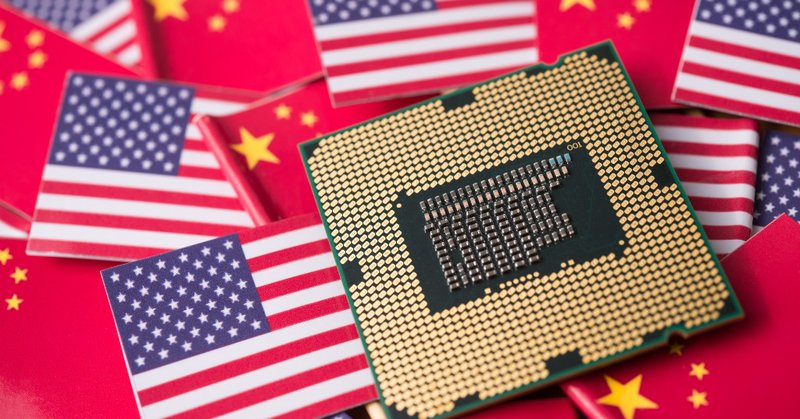
Janet Egan
@janet_e_egan
Followers
747
Following
127
Media
25
Statuses
215
AI and National Security. Senior Fellow at CNAS. views are my own.
Joined February 2016
🚨 New Report: Global Compute & National Security 🛡️ How the US can secure global AI leadership, why maintaining the “compute” advantage matters, and how proactive partnerships can strengthen America’s edge. 🧵1/
1
18
60
Emphasizing Dean's point #1 here: a key question is how (and on whom) China's chip controls will be enforced. Beijing has a long history of sweeping regs with selective follow-through.
This is a very big deal. China has asserted sweeping control over the entire global semiconductor supply chain, putting export license requirements on all rare earths used to manufacture advanced chips. If enforced aggressively, this policy could mean "lights out" for the US AI
0
2
13
🔥 lineup for our Oct. 15 event on Countering China's Digital Silk Road 🇺🇸🇨🇳: 🎙️Fireside chat w/ former Dep. Secretary of State Kurt Campbell 🪑Expert panel w/ Jonathan Hillman (@CFR_org), Ruth Berry (@nvidia), @rubyscanlon, and James Palmer (@ForeignPolicy) Register ⬇️
1
6
3
Finally had a chance to listen through this pod with Sutton, which was interesting and amusing. As background, Sutton's "The Bitter Lesson" has become a bit of biblical text in frontier LLM circles. Researchers routinely talk about and ask whether this or that approach or idea
.@RichardSSutton, father of reinforcement learning, doesn’t think LLMs are bitter-lesson-pilled. My steel man of Richard’s position: we need some new architecture to enable continual (on-the-job) learning. And if we have continual learning, we don't need a special training
419
1K
9K
If you read one report* on AI and cyber risks, I recommend this. *or even just this thread.
AI's cyber capabilities are improving rapidly, with no sign of slowing. So far, AI has likely helped defenders overall. I hope this continues—but worry it’s not assured. 👇🧵 New report from me today on Emerging AI Capabilities and the Cyber Offense-Defense Balance—and what
0
0
5
According to this paper, the Unitree G1 humanoid robot secretly and continuously sends sensor and system data to servers in China without the owner's knowledge or consent. https://t.co/2QkidW1lNj
124
302
2K
This week at UNGA, President Trump committed to working with top leaders to pioneer "an AI verification system that everyone can trust" to help enforce the bioweapons convention. But is this technically possible? What more is needed to drive AI verification measures forward? If
Looking forward to holding a great event in NYC this evening on Verifying International AI Agreements, a very technically rich topic. We’ll have a keynote from @benharack, followed by discussion with @MauricBaker, @janet_e_egan, @jordanschnyc, and @prpaskov. There are a few spots
0
2
13
Looking forward to holding a great event in NYC this evening on Verifying International AI Agreements, a very technically rich topic. We’ll have a keynote from @benharack, followed by discussion with @MauricBaker, @janet_e_egan, @jordanschnyc, and @prpaskov. There are a few spots
2
3
19
AI's cyber capabilities are improving rapidly, with no sign of slowing. So far, AI has likely helped defenders overall. I hope this continues—but worry it’s not assured. 👇🧵 New report from me today on Emerging AI Capabilities and the Cyber Offense-Defense Balance—and what
1
4
29
“when innovation is fast, it makes sense to build slow.”- an actually good critique of where Klein & Thompson get abundance wrong from @trblomfield (I love trains too, but the economics just don’t stack up)
1
0
4
NEW: In the Sunday @nytopinion, Kurt Campbell and I argue America alone can’t match China’s scale. With "allied scale," it’s no contest. But if Trump keeps alienating US partners, we'll never get there—and the next century will be China's to lose.
132
489
2K
@ChorzempaMartin (1) The compute gap is growing bc the US hasn’t been shipping AI chips to China. That would change if we do. (2) @janet_e_egan’s piece below explains why software isn’t a strong moat. US firms are getting around it, China could too. (3) Supply very clearly constrained for
2
1
9
Selling AI chips won’t keep China hooked — it will accelerate their progress while they build domestic alternatives. The real leverage is higher up the stack: cloud compute, AI models, applications, and services where the US sets terms and captures value. 6/
1
0
1
America’s own labs prove the moat is crossable. Anthropic, while originally dependent on Nvidia, now optimizes its training for AWS Trainium chips (in combination with some Google TPUs and Nvidia GPUs). Despite some early breakthroughs with NVIDIA chips, Google DeepMind now
1
0
3
Switching costs are significant, but they are solvable when strategy and capital align. Hardware is ultimately value-neutral: you can swap it, mix it, or layer new software on top. Access today ≠ dependence tomorrow. 4/
1
0
1
But Beijing is already planning to prevent lock-in. It’s pouring billions into domestic chip development while simultaneously making US chips less attractive: new energy efficiency rules discourage H20 usage, and security warnings signal that Nvidia dependence is risky. The
1
0
1
The “addiction” theory banks on vendor lock-in. There’s some merit to this: Nvidia’s CUDA and networking stack act as a moat, creating switching costs that keep developers buying more Nvidia chips. Undisrupted, this trend could lead to AI investment flowing to US, not Chinese,
1
0
2
US policy shouldn’t rest on the illusion that selling AI chips can trap China in America’s tech ecosystem. America’s own labs show why such dependence is fleeting. 🧵1/
2
10
17











